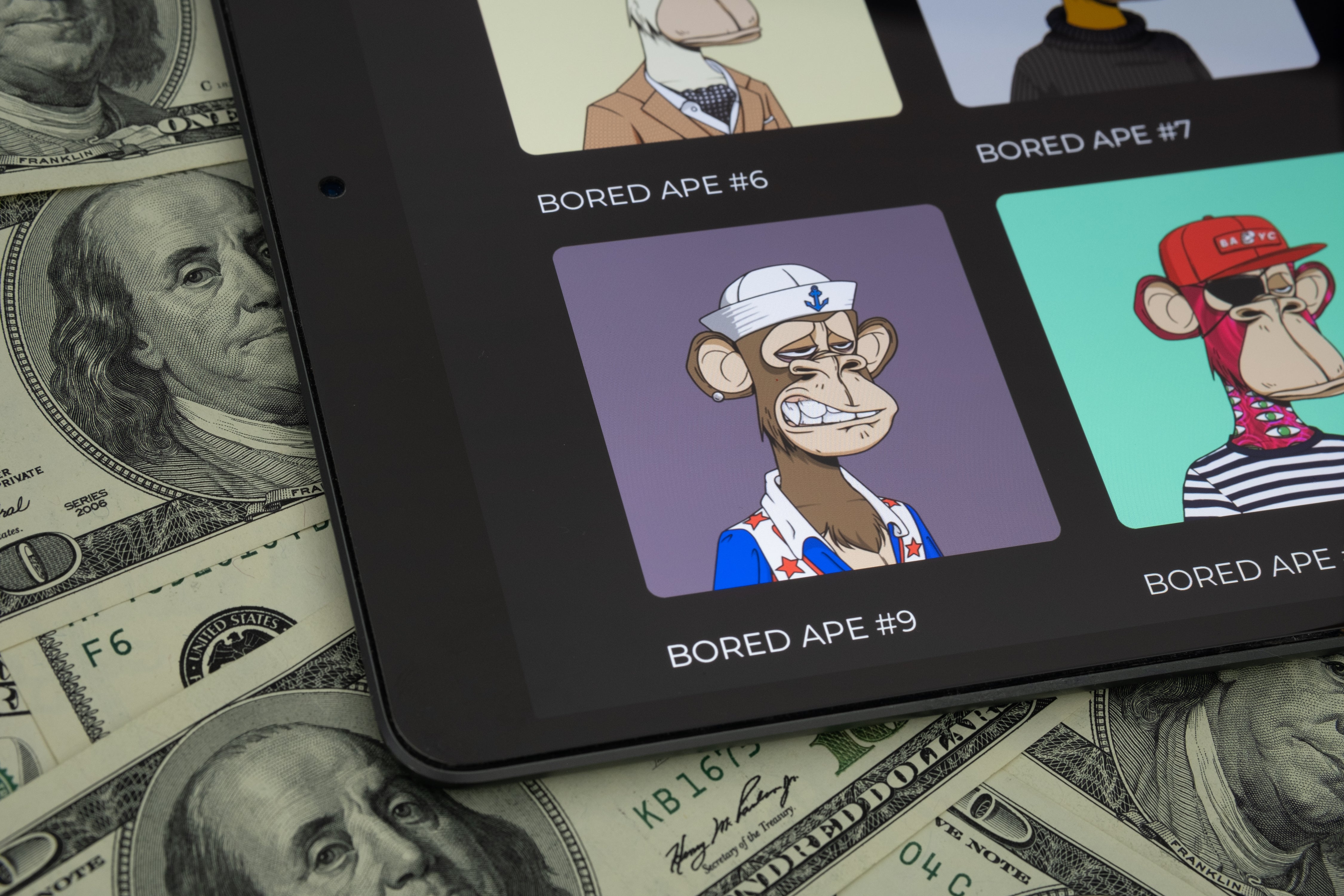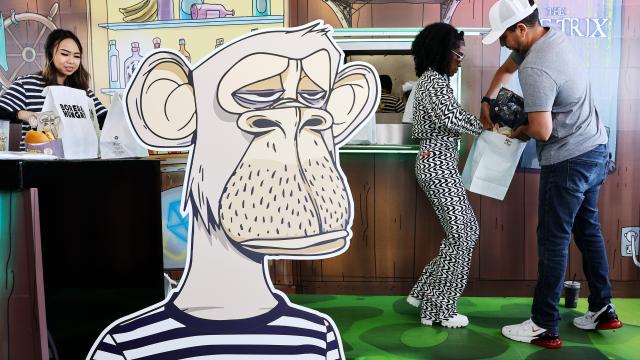Yuga Labs, the company behind the toilet-obsessed Bored Ape Yacht Club NFTs, is in a strange space regarding its intellectual property.
As first reported by ARTnews, new documents filed by Yuga Labs in an ongoing lawsuit goes out of its way to avoid the topic of whether its infamous Bored Ape Yacht Club NFTs actually have copyright.
Last year, Yuga Labs filed a lawsuit over trademark infringement against Los Angeles conceptual artist Ryder Ripps. The company alleged Ripps had been “trolling” the company by creating a copycat collection of Bored Ape look-alikes. Yuga Labs said the “RR/BAYC” collection of not-apes has sought to devalue their own NFT collection. Ripps has denied any claims of false advertising, and has instead alleged Yuga Labs was subversively inserting racist imagery into their popular NFT collection.
The court filings dated Jan. 18 mention that the Yuga Labs lawsuit hasn’t filed any kind of copyright takedown notice, neither has the company registered any copyright on their NFTs.
The Hong Kong-based law firm Haldanes has noted that the 44-page lawsuit did not mention the word “copyright” even once. It suggested this could be because the company has not registered any copyright on its NFTs. Ripps has asked the court for a declaration on whether the company owns any copyright on its work. The company could have also been trying to avoid any question of fair use.
Though the filings also explicitly asked the court to declare that the company “does not possess a copyright in the Bored Ape images.” Instead, the company said a copyright “exists at the moment copyrightable material is fixed in any tangible medium of expression… Registration of a copyright is not required to own one; it is required to file suit on one.”
Yuga Labs and its lawyers instead asked the court to ignore the whole silly copyright question, since it does not plan to file any suit regarding copyright. The company restated its position in a statement to Artnews, writing “When provenance is documented, like with BAYC NFTs, copyright protection is automatic.” Gizmodo reached out to Yuga Labs for comment and clarification, but we did not immediately hear back.
The company also told ARTnews that Yuga Labs grants intellectual property licenses and rights to its NFT holders, though the company itself “maintains the underlying copyright for the artwork.” With this back and forth between Yuga Labs and Ripps, the company is trying to avoid having the court decide whether its company has a copyright, or at least agree that it maintains a provisional IP protection.
Can Generated NFTs Even Be Copyrighted?
The BAYC terms and conditions grants purchasers a licence to use the NFT in several ways, both commercially and display-wise. This became an issue for Seth Green, the famed actor who was working on a television show based on his Bored Ape #8398 called “Fred Simian.” Poor Fred was stolen from Green’s wallet which apparently forced the show to go on hold until it was eventually returned.
None of the current official terms of services actually mention intellectual property or copyright. Of course, the confusing thing is even if the company does claim copyright, simply selling an artwork, such as a physical painting, does not transfer copyright of an artwork. Galaxy Digital, a crypto merchant bank, alleged back in 2022 that Yuga Labs was one of several NFT issuers that had “misled” purchasers about their IP rights for that content. Instead of issuing full rights, Galaxy alleged Yuga Labs was simply issuing a “licence” to use the NFT.
“By clearly granting a licence in their agreement, Yuga implicitly acknowledges that the NFT holder does not, in fact, own the art.”

Of course, even that reading is confused about whether Yuga Labs or BAYC owners have any actual copyright claim on their NFTs. And if anyone tried, they’d be unlikely to get registration. Bored Apes, like most large NFT projects, aren’t hand-crafted images designed by hundreds of scribbling employees, they’re algorithmically cobbled together using a swathe of pre-crafted assets. There are 170 traits that make up a Bored Ape, where some are rarer than others (which introduces greater artificial scarcity, driving up the prices for some apes).
It’s hard to explicitly say that Bored Apes are created using “artificial intelligence” as that moniker has become synonymous with GPT and diffusion generative AI, though there’s certainly a lack of real human authorship other than the individual assets that make up each ape.
The problem there is that the U.S. The Copyright Office has routinely rejected copyright requests on behalf of AI systems. The last major test case for this was scientist Stephen Thaler, who tried to register AI-generated art and designed a system he created called Creativity Machine. The copyright office has said the AI art “lacks the human authorship necessary to support a copyright claim.” Earlier this month, Thaler sued the copyright office looking to overturn the board’s decision.
New York-based artist Kris Kashtanova has successfully registered copyright for a graphic novel that used AI-generated art. However, the copyright office is now re-reviewing that case. The office has previously told Gizmodo “The office will not knowingly grant registration to a work that was claimed to have been created solely by machine with artificial intelligence.” There are several other ongoing lawsuits all surrounding AI and copyright, but there’s still an open question of whether machine-created artwork affords any legal protection.
